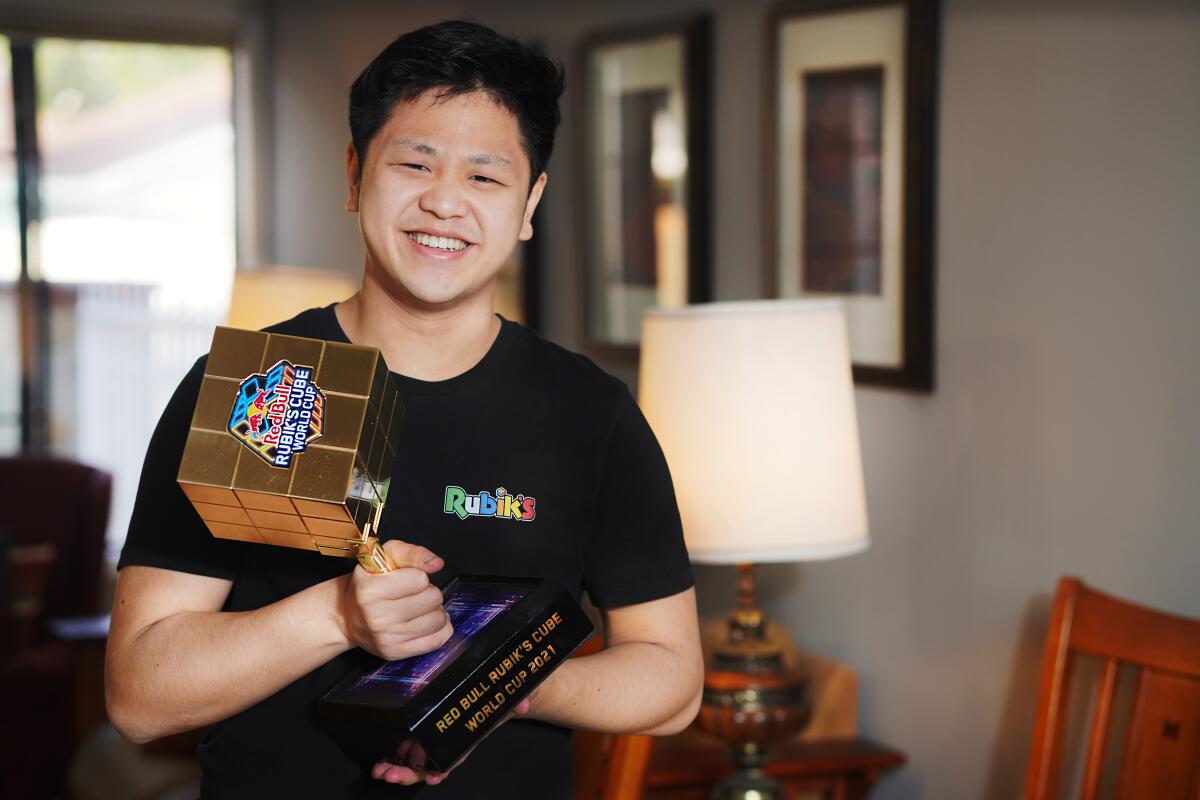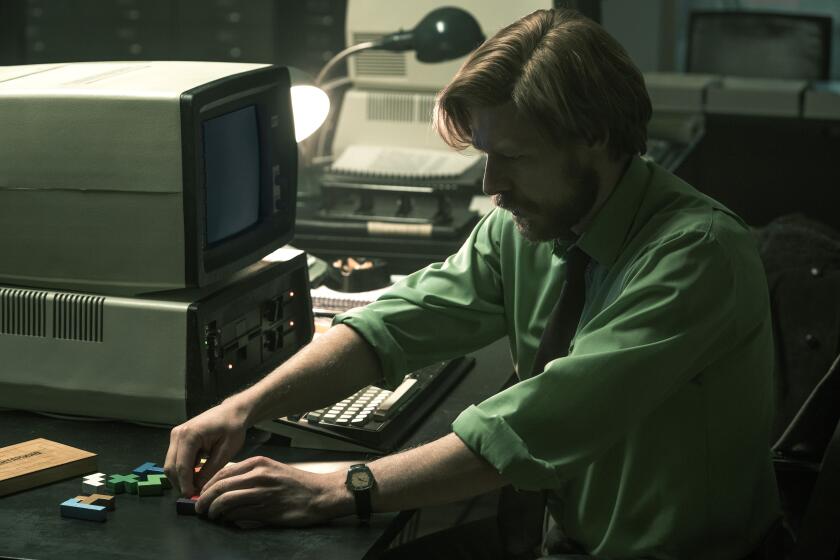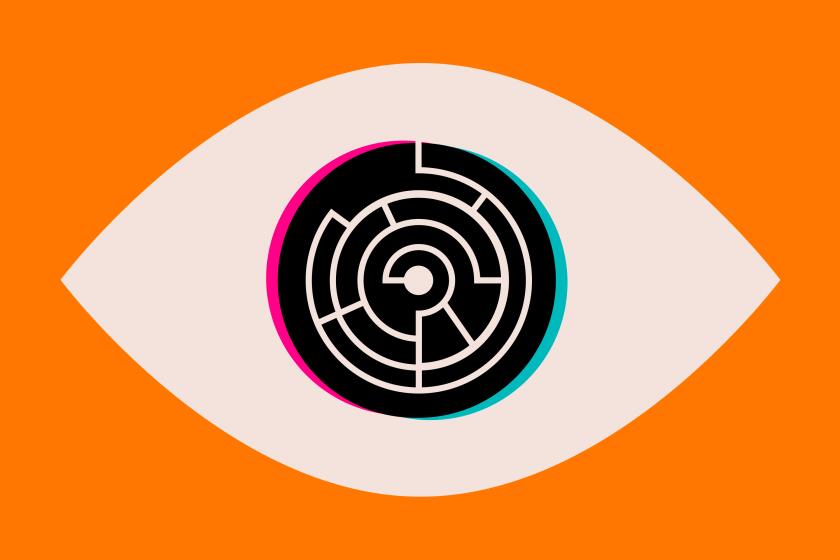Southern California resident smashes Rubik’s Cube world record with 3.13-second solve

- Share via
Max Park spent about 10 seconds studying the jumbled Rubik’s Cube in front of him at the Pride in Long Beach World Cube Assn. competition last weekend.
Cracking it took less than a third of that time.
With a deep breath, steady hands and just 3.13 seconds, the 21-year-old solved the colorful mind game with 43 quintillion possible combinations, aligning each side perfectly by color.
In a video capturing the moment, Park slams his hands down to stop the clock, claps and yells “Yes!” — knowing he had just broken the world record for fastest solve of a single 3x3x3 Rubik’s Cube.
A watching crowd went wild, celebrating the achievement with him.
“It was chaos, pandemonium,” said his dad, Schwan Park. “There was sort of a pent-up desire for someone to get the record for a long time.”
Max Park broke the previous record of 3.47 seconds that Yusheng Du of China set more than four years ago, according to Guinness World Records and the World Cube Assn.
Schwan Park admits gaining a new record isn’t exactly novel for Max — he’s set almost 70 in his decade competing in speed cubing. But this one is different: The 3x3x3 is the original Rubik’s Cube, and the record is for a single time, instead of a specialty competition, such as solving using the fewest moves or only one hand.
“This was the actual apex of records … it’s the one that everyone covets,” Schwan Park said.
In ‘Tetris,’ the Game Boy classic is described as ‘the perfect game.’ We asked its creators, the filmmakers and games experts about its lasting appeal.
The family, who live in Cerritos, commemorated the new record with a Southern California favorite and Max Park’s go-to celebration: all-you-can-eat Korean barbecue.
Park has been featured in a Netflix documentary focused on him and other “speed cubers” who compete in the globally recognized sport, which can include blindfolded or timed solves.
Park’s dad said that when Max was a young child with autism, the family hoped he would take to Rubik’s Cubes to help with his fine motor skills. When his parents took him to his first competition more than a decade ago, Schwan Park said they hoped it would be “a giant therapy play date.”
But then Max started winning.
For our third and final piece in our series on neurodivergence, we’ll explore what people stand to gain through self-diagnosis, criticism that’s been leveled at people who’ve chosen to do so, and when it may be necessary to seek a professional assessment.
At his second-ever competition, 10-year-old Max Park won first place in the 6x6x6 competition, and organizers said his times were in the top 100 nationwide.
“We never imagined he would get here,” Schwan Park said. “The speed cubing community has saved our lives — it literally saved Max’s life and our lives.”
Though the achievements have been notable, Schwan Park said speed cubing has helped his son learn to socialize, make friends and expand his horizons.
“It’s just an amazing community,” Schwan Park said. “Even to this day he’s still learning.”
More to Read
Sign up for Essential California
The most important California stories and recommendations in your inbox every morning.
You may occasionally receive promotional content from the Los Angeles Times.













